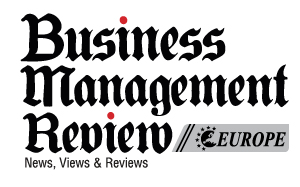DECEMBER - JANUARYBUSINESSMANAGEMENTREVIEW.COM8In today's setting, the word "technology" is no longer associated with "future". Technology has become an essence of people's everyday lives this applies the same in the business context as businesses respond to people's demands and needs. On the other hand, historically the word "technology" or innovation had not always gone hand-in-hand with the word "legal". Early in my career, it was no secret that the legal industry was steeped in tradition and rather conservative. Lawyers were not necessarily popular for being enthusiastic drivers of tech-innovation, preferring instead human expertise. There was so much fear and skepticism in doing things differently, especially when it came to using non-human expertise. I remember when I first moved from private practice to in-house, my marketing colleague was telling me that the only technology proficiency that lawyers might have, was with "Microsoft Word". I think that was a common perception: that lawyers only knew the basics when it came to technology. However, during the course of my career, that perception has been slowly changing. In recent years, companies have invested in legal digital solutions and automation to eliminate or minimise manual work, fostering greater efficiency, better and faster processes, whilst maintaining good governance in managing legal risks. The in-house team who used to be quite hesitant to deal with technology, is now adjusting, transforming and benefiting from technology in managing their tasks. This shift could also be prompted by the fact that legal teams are overstretched and under-resourced, not to mention the pressure on legal budgets, so lawyers have started turning to technology to see how it can help. Adding to that the pandemic, which hit the world in early 2020, has changed everything changed consumer behaviors, changed the way we do business and of course changed the way we work. The pandemic indeed accelerated needs and how we heavily rely on digitalization. Online shopping, e-commerce, online payment, Zoom calls, Google Hangout, Microsoft Teams calls, and social media live streaming have become part of everyday life. Like many General Counsels, I also face the challenges of how to provide support and services to the businesses and meet their needs in the most cost-effective, efficient, fast (and cutting-edge) manner with the available resources. So I too turned to technology to find means and tools to help us deliver on these expectations. I am very fortunate that I work in an organisation where technology and innovation are part of its DNA. The Beauty industry, by its nature, is perhaps the fastest, most dynamic and constantly changing industry. L'Oreal leverages the best of science and technology, increasingly inspired by nature to shape the future of the beauty. With this, L'Oreal aims to offer each and every person around the world the best of beauty in terms of quality, efficacy, safety, sincerity and responsibility to satisfy all beauty needs and desires in their infinite diversity, which ultimately creates the beauty that moves the world. Considering that setting, it was not too difficult for me to pitch the idea of investing in digital tools to our CFO as one of simplicity and efficient solutions. The senior executives supported having LEGAL & TECHNOLOGY: HOW IN-HOUSE LAWYERS ARE EMBRACING TECHNOLOGYBy Kezia Pembayun, South Asia Pacific General Counsel, L'Oreal [EPA: OR]Kezia Pembayun
< Page 7 | Page 9 >
< Page 7 | Page 9 >


